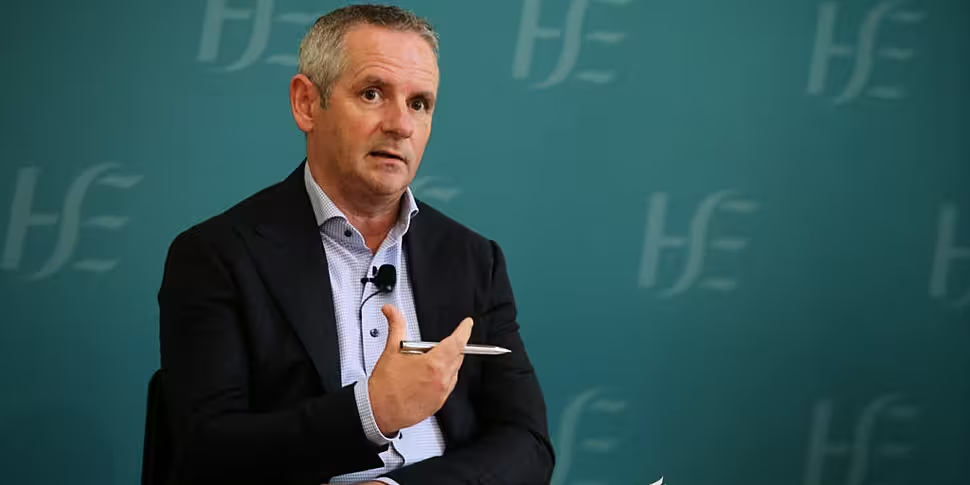The positivity rate in testing for COVID-19 has declined over the past eight days and the number of close contacts has also reduced to an average of three, according to the Chief Executive of the HSE.
Paul Reid said that while it is still very early, the numbers are good news.
It comes as the latest figures show 295 people are being treated in hospital for the virus, a decrease of 20 since yesterday afternoon.
37 people are in ICUs.
Mr Reid told On The Record with Gavan Reilly that the other good news was that the majority of contacts are being traced to households rather than social interactions.
He said: "What we're seeing in terms of positivity rates in the testing that we're doing, we have seen it continuously reduce over the past eight days.
"It still has a very high level of over 5.5%, but we can take good positivity out of that because it has come down from 8.9%.
"The average of close contacts of those two tested positive for the virus is gone down to 3, and that had been 4.5.
"The second thing that's good is we're now seeing the majority of close contacts are generally household family contacts, more than social."
He emphasised the importance of people restricting their movements and isolating if they come in contact with a positive case, and to not return to work immediately even if their test is negative.
The positivity rate in testing has now come down over the past 8 days. The number of close contacts is now down to an avg. of 3. Most close contacts are household. Still very early but good. We're all be part of the solution. Let's keep this going. @HSELive #COVID19
— Paul Reid (@paulreiddublin) October 25, 2020
Mr Reid said the high uncontrolled levels of the virus was a function of last week's collapse of the HSE's contact tracing system.
The system became overwhelmed due to a surge in demand and a lack of required resources led to thousands of people who tested positive for COVID-19 being asked to do their own contact tracing.
He says follow-up calls are being made to those affected this weekend to assess the outcome of their calls.
He added that the high number of cases means contact tracing involves a higher volume of complex calls to people.
Mr Reid: "What we are seeing is calls taking double the time they were taking at the start of this, more volume of calls and more complex calls.
"Uncontrolled levels [of the virus] means more complex calls, and it's having a significant impact.
"Last week shouldn't have happened to the extent that it happened, but it did and it was one of those overwhelming weekends when 3,500 calls had to be made.
"We went from 8,000 calls per week to 28,000 calls per week in a very short period and that certainly culminated last weekend in not having the required resourced in place.
"There has been a challenge for us on the scale of recruitment levels we are at, we have now 270 people recruited, and in essence, what happened last weekend were absolutely uncontrolled levels in the community.
"I regret what happened last weekend and how we fixed it."
Mr Reid said the HSE really need the help of the public to turn the situation around with regard to controlling the spread of COVID-19.
Testing, building ICU capacity won't turn the trend around on their own, he said, rather it is people's individual behaviours that can help.









